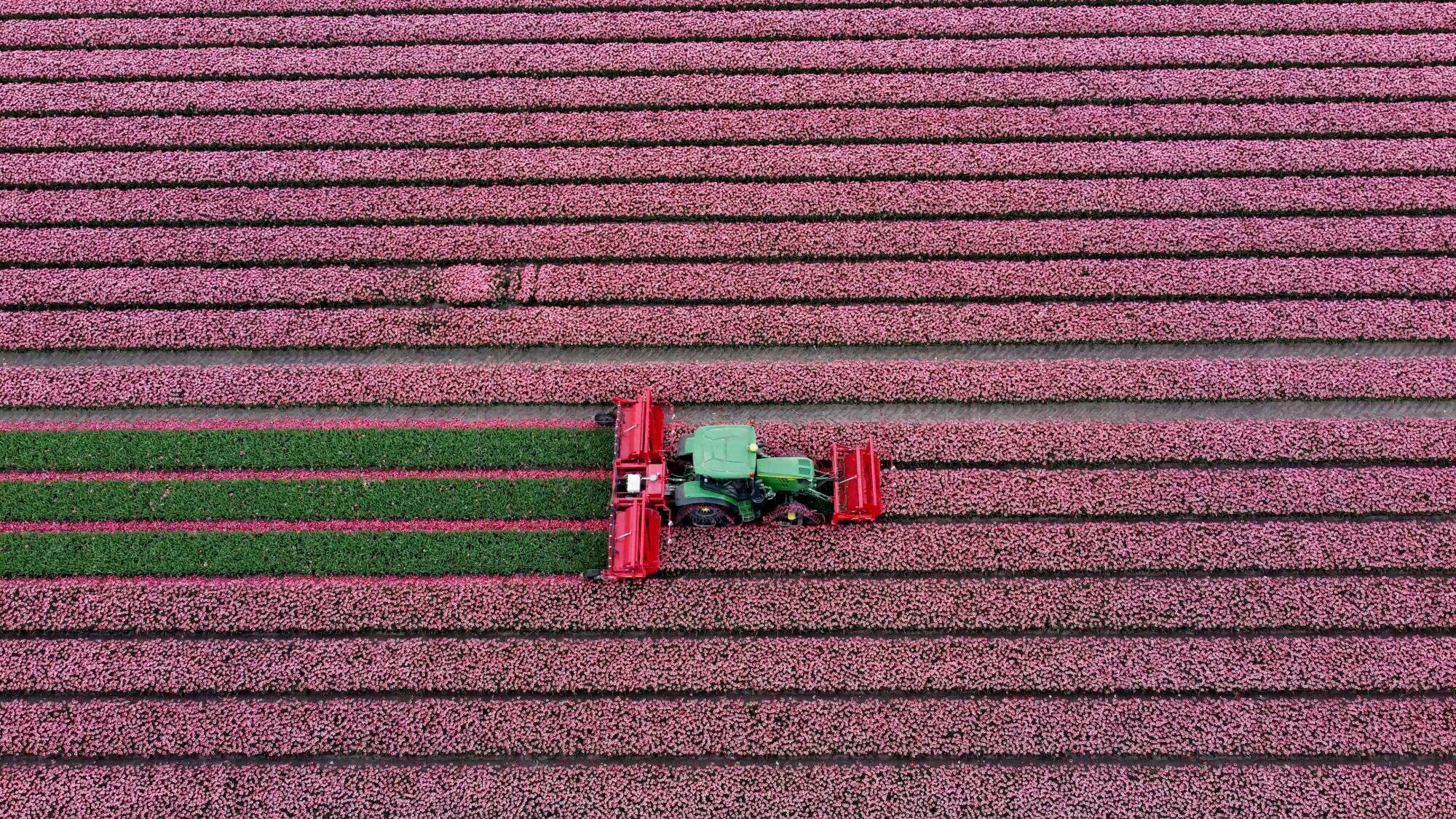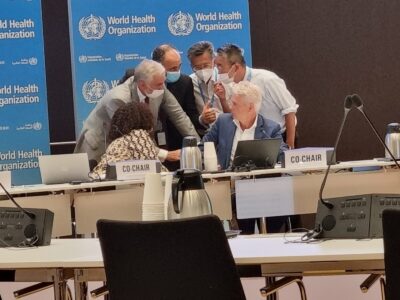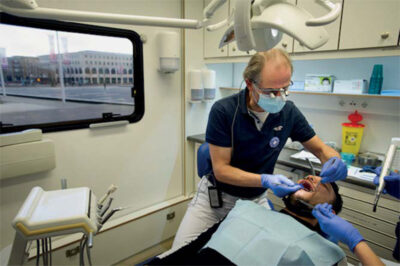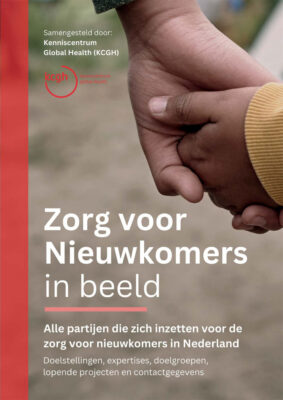Main content
Leon Bijlmakers was editor-in-chief of MTb from 2015 until 2020. We interviewed him to honour his commitment and dedication to MTb.
Leon Bijlmakers graduated in 1983 as an agricultural engineer with an MSc in Human Nutrition from Wageningen University. Soon after, Leon and his wife Anny Peters were employed by Stichting Nederlandse Vrijwilligers (now SNV; Netherlands Development Organisation) for three years in the field of ‘Soins de Santé Primaires‘ (primary healthcare) in Burkina Faso. Next, he worked with the World Health Organization sub-regional office in Zimbabwe as an associate professional officer, training health professionals in several countries in Southern Africa in conducting health system research. In Zimbabwe, he became involved in a research project, which eventu-ally formed the basis for his PhD thesis on the implications of economic structural adjustment on health systems, people’s health and child nutritional status. After spending two years in Hanoi, Vietnam, he worked for almost fifteen years as an inter-national consultant on health system research and development with the ETC Foundation. Since 2012, Leon has been assistant professor at Radboud University Medical Center, where he teaches global health and undertakes research. The economics of scal-ing up district-level surgery for rural populations in Malawi, Zambia and Tanzania is one of the research projects he has been leading. As a member of the global health priorities research group, he supports several low- and middle-income countries in designing or revising health benefit packages. From 2003 until 2010, he served as board member and treasurer of the NVTG, and as a member of the sci-ence committee. In 2015 he joined MTb‘s editorial board as chief editor. Five years later, he decided to give up that position, one year after hav-ing joined the editorial board of the European journal Tropical Medicine & International Health (TMIH).
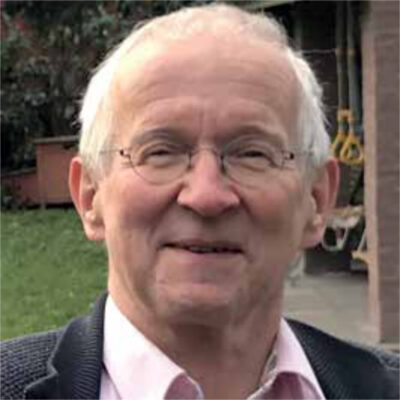
How do you look back on your time as chief editor of mtb?
“Positive. I have really enjoyed work-ing together in a team of people with diverse professional backgrounds and experiences. I do think that sometimes I may have taken over the writer’s role, by editing a lot in some of the manuscripts that we received. Not every person we ask to con-tribute a piece to MTb is a skilled author. Good clinicians or practitio-ners do not always have good writing skills. But on the other hand, I thought it was neces-sary to publish attractive papers. As chief editor, I felt the responsibility to produce a journal with good quality content.“
Did you experience any struggles during your time as chie editor?
“I struggled a bit with the balance between the efforts we spent as editorial board members in compiling a fresh MTb edition every three months and the size of our journal’s readership. I some-times wondered, and I actually still do: who is actually reading the articles we publish? I know that some NVTG mem-bers were a bit apprehensive when MTb switched from Dutch to English, but it may have attracted non-Dutch speaking readers. We do not know how many.“
Very recognizable. any advice?
“A survey, like the one the board sent out recently, may give a clearer idea of who reads MTb and what they like or dislike, assuming you get a good response. I know that some MDs International Health & Tropical Medicine are sharing MTb with colleagues at their work-places. That is a good way to involve more people from abroad. During my time as board member of NVTG, I pleaded for broadening the society’s membership to Global Health profes-sionals other than medical doctors only, like entomologists or physio-therapists. This has also contributed to broadening the readership of MTb. Recruiting new MTb board members from different disciplines could also further expand the group of readers.“
In our journal we aim to combine and connect the more traditional clinical or tropical medicine subjects with public health. do you think mtb succeeds in that?
“Yes. It has always been the aim to alternate between clinical and public health topics. In my opinion, there is a good balance between both.“
What is your vision on the future of mtb?
“It would be great if it continued to exist. It is mainly spread digitally, and I think few people still prefer to receive hardcopy versions. Transforming MTb into a full-fledged peer-reviewed scien-tific journal might be too ambitious and not realistic. It should occupy its own niche in an environment that is already inundated with scientific journals. With TMIH [ed: the orange-coloured European journal], we are also strug-gling a bit to maintain our market share. The world of scientific publications is quite volatile. Publishers sometimes put high pressure on editorial boards, partly because they want to remain profitable. If MTb were to compete with other journals, it would need a professional publisher and a more attractive incentives structure for potential authors. I doubt we can afford that, in view of our voluntary board, despite all the enthusiasm of its members.“
So, what’s the added value of mtb?
“MTb’s added value may have dwindled a little over the years, also because of the open access policies which entail free and unlimited access to published articles. The “Dutch” character of MTb does make it quite unique. I am also much in favour of the longstanding tradition of combining every year’s third edition with the annual NVTG conference theme. It provides useful information that is complementary to the conference talks and helps feed the discussions, which is good. Besides this, MTb remains relevant for NVTG working parties, as a platform to spread information and ideas. I also feel that, with the recently established Kennis Connectors Global Health (KCGH), there is a need for some link with MTb because the two have similar values and complementary aims.“
Anything else you want to share about mtb?
“In my opinion, there is a need for the MTb board to work towards decolonising global health. A bit trendy perhaps, but I do think that we sometimes receive manuscripts with a condescending tone, as if the global North has lots to offer for the global South – whatever those two concepts mean – without acknowl-edging that the reverse is also true. I struggle with that, and it would be good to be more alert for such sentiments.“
What advice do you have for students and young profes-sionals working abroad in a low-resource setting?
“Try to really blend in with your new environment; switch off your telephone every day for at least a couple of hours so as not to get distracted by everything that hap-pens back home in the Netherlands. Learn some basics of the local lan-guage, because it makes work and ordinary life so much more enjoyable for yourself. It will help you in getting connected to local people. Read the book De derde wereld op je cv [ed: The third world on your cv] by Judith van de Kamp. She gives really good practi-cal advice for when you start working in a new cultural environment.“
















































